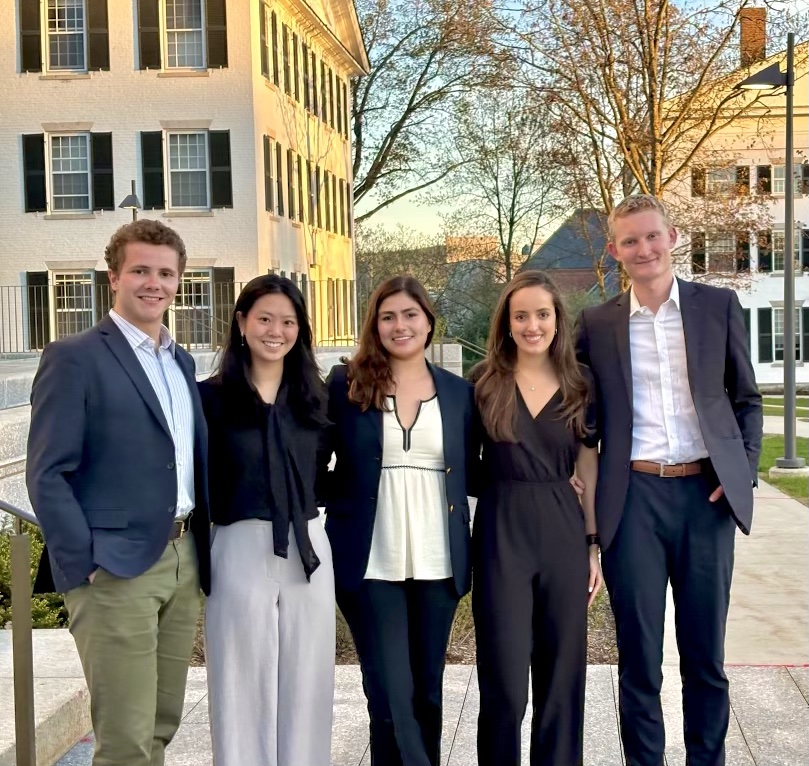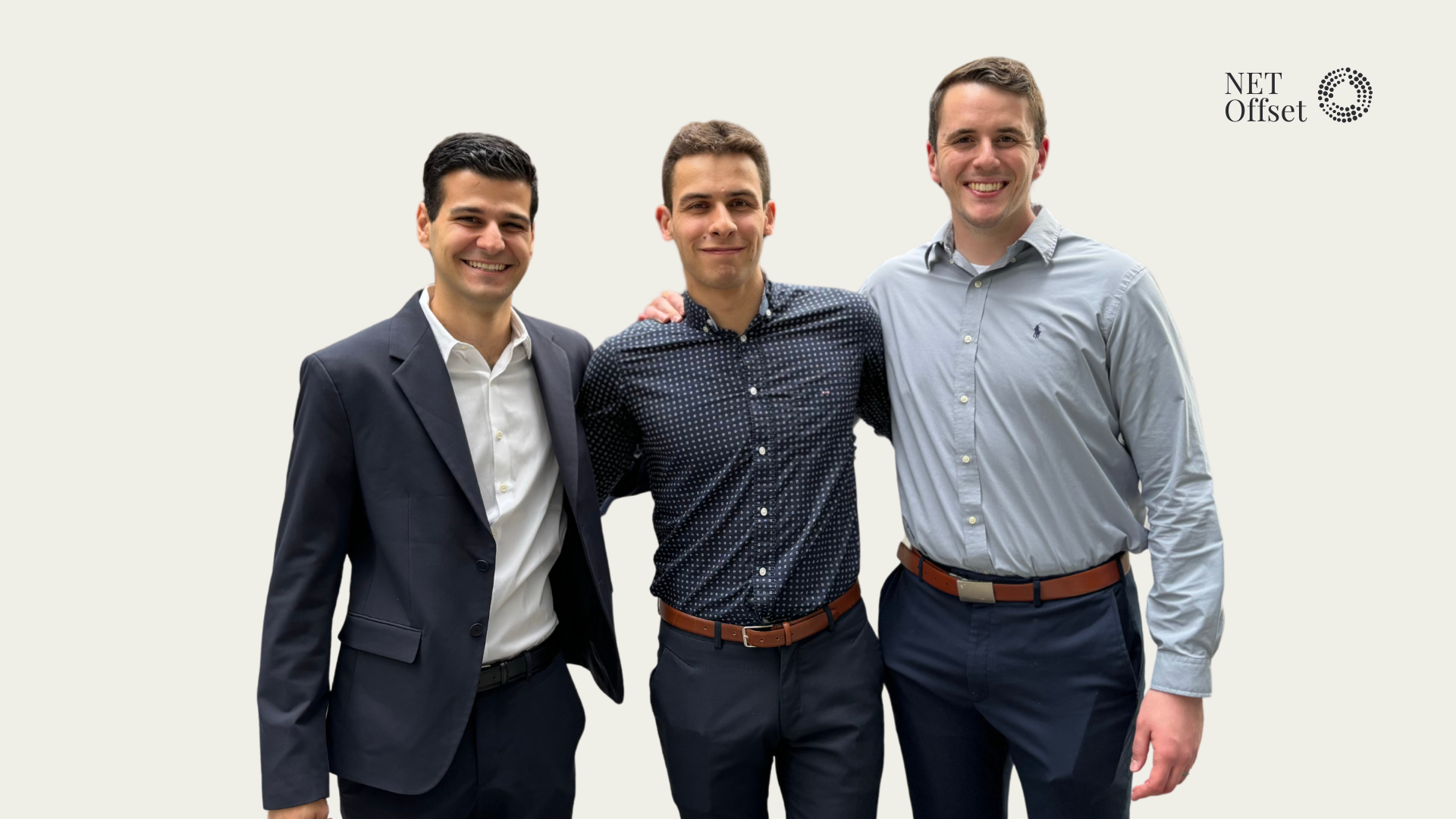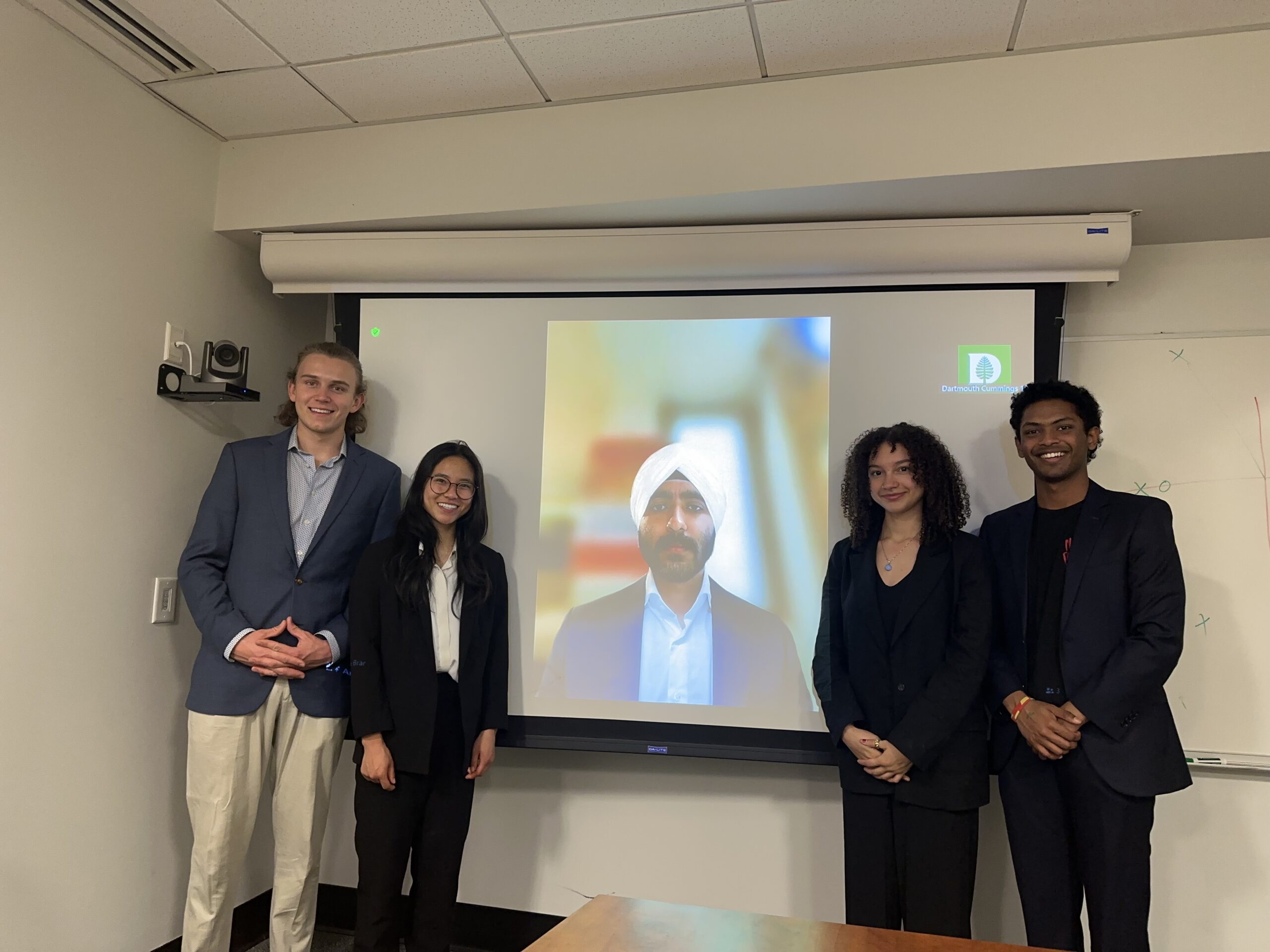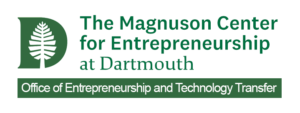Three Dartmouth Teams sponsored by the Magnuson Center Compete for the Hult Prize, $1M in Funding
Three Dartmouth Teams sponsored by the Magnuson Center Compete for the Hult Prize, $1M in Funding

After winning an on-campus competition, three Dartmouth student-led teams from the Magnuson Center will pitch their social entrepreneurship ideas to a global audience and learn from leaders in their fields as they participate in Hult Prize Summits this summer.
The Hult Prize, run by Hult International Business School and backed by Former President Bill Clinton, supports students who are looking to change the world through social entrepreneurship. Over the fall and winter terms thousands of students around the globe participated in on-campus qualifiers. Out of those, 400 teams—including three from Dartmouth—were invited to summits taking place around the world this summer. Top teams from the summits will advance to the Hult Prize Global Finals, held in September, where they will compete for $1 million in funding to advance their idea.
The Dartmouth teams were well-prepared for the Hult competition after participating in the DartUP Social Blueprint Challenge hosted by the Magnuson Center, said Sarah Morgan, Senior Program Manager of Experiential Learning at the center. Hult organizers approached DartUP about using the Social Blueprint Challenge as the on-campus portion of the Hult competition. Nine highly qualified teams participated in the challenge, with the first automatically earning a spot at the Hult summits.
“The acknowledgment of the Hult Prize is beneficial because it allows our teams to build past what we can offer as a student-run organization on campus,” said Bryce Alexander ’27, who, along with Ava Weinrot ’27 was a Co-Team Lead for the DartUP Social Blueprint Challenge.
“The Hult Summits offer professionally run accelerators and connections around the world that will serve for a lifetime,” Alexander added.
The partnership with the Hult Prize allows DartUP to provide more resources to students, said Vania Zhao ’25, co-chair of DartUP along with Timothy O’Reilly ’25, while building on the knowledge that students gain by participating in the Social Blueprint Challenge.
“Our judging criteria and subsequent feedback prepares the teams for future success, whether that is through the Hult Prize or further developing their enterprises using other on- or off-campus resources,” Zhao said. “The Social Blueprint Challenge is a stepping stone for all teams to refine their startups and guide them to continuing their entrepreneurial efforts.”
The three teams that will participate in the Hult Summits are:
NovaChirp

NovaChirp, which won the Social Blueprint Challenge, is a cricket superfood startup, dedicated to tackling global malnutrition and promoting sustainability in line with key UN Sustainable Development Goals.
“NovaChirp is revolutionizing the fight against global malnutrition with our innovative, nutrient-rich cricket protein bouillon cubes,” said team lead Adriana Chavira Ochoa '24. “Our cricket protein cubes are nutrient-dense, easy to prepare, and significantly reduce land, water, and carbon emissions compared to livestock. By engaging in a circular economy and supporting local farmers, NovaChirp not only addresses food insecurity but also promotes environmental health and economic vitality.”
In addition to Chavira Ochoa, the NovaChirp team includes Elizabeth Ding '24, Mike Hanrahan '24, Paulina Cuadra '25, and André Bouzid ’25. The team will participate in the Hult Summit in Lisbon, Portugal from June 21-22.
Chavira Ochoa said that will be a chance to build on what the team already learned on campus.
“Participating in DartUP was an incredible learning experience,” she said. “It provided me with invaluable insights into startup development, market validation, and the importance of a strong value proposition. I learned how to effectively pitch my idea, receive constructive feedback, and refine our business model to better meet the needs of our target market. The mentorship and support from industry experts and peers were instrumental in helping us navigate the challenges of an early-stage startup.
In Lisbon, the NovaChirp team will have an eye toward global impact, Chavira Ochoa said.
“I am looking forward to connecting with potential investors, partners, and mentors who share our vision of sustainable nutrition and can provide the resources and guidance needed for our growth,” she said.
NET Offset

NET Offset is a Public Benefit Corporation using supply chain optimization to transform the bioenergy industry.
The team is developing a supply chain optimization platform that integrates life cycle assessment (LCA) and end-use demand segments into the overall network design phase in order to eliminate the waste in bioenergy supply chains and help deploy the infrastructure which will bring the country to net-zero emissions.
“There’s no pathways to net zero without using biomass in more innovative ways,” said CEO Baptiste H. Gibrat GR’25.
The NET Offset platform not only accounts for the complexities of the biomass industry, but also creates opportunities to capitalize on unused biomass in order to increase farmer’s revenue by up to 25%.
In addition to Gibrat, the team includes Michael J. May, TH’25 PhD and Thomas Hue TH’24. The team will participate in a summit in Monterey, Mexico, on June 14-15.
Gibrat is particularly excited about that location, since the NET Offset team “realized we had a connection in Mexico that could benefit from our model.”
Sea Energy

Sea Energy is an early-stage social enterprise that seeks to harness ocean wave movement to generate zero-emission electricity.
“There’s such great potential for wave energy, but it’s not really happening yet,” said team lead Calvin Benson ’25. In part, that’s because of challenges that make establishing renewable energy in the ocean very expensive, including the need to drill into the ocean floor. Sea Energy offers a more cost-effective option that doesn’t require drilling, Benson explained.
In addition to Benson, the team consists of Eva Hymes ’25, Emily Masuda ’24, Shaamil Shaw Alem ’26 and Arjun Brar ’25 at Georgetown University. The team will participate in the Dubai summit from June 21-22.
During DartUP, the team created their initial prototype and refined their idea with guidance from the Dartmouth community.
“It was just awesome having those experienced mentors and professors coming in and giving us so much information and advice,” Benson said. “I learned a lot about social entrepreneurship generally, what it is, and how I can take my idea of a renewable energy business and make it a social enterprise.”
Benson is thrilled about the opportunity to continue to grow his network of social entrepreneurs at the summit and to learn from the other teams.
“It will be a great experience to meet a wide variety of people from around the world,” he said.

